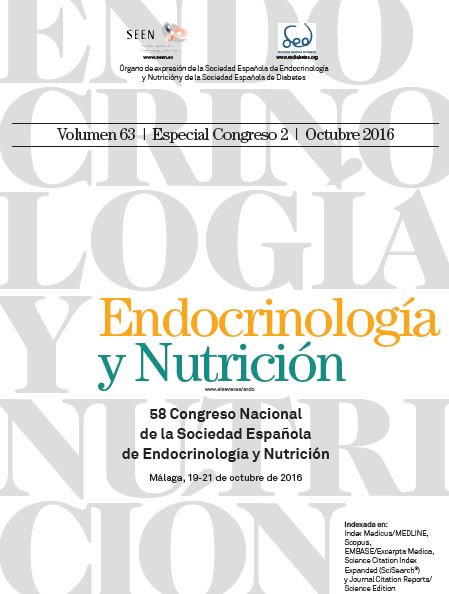47 - Effects of ketoconazole on ACTH-producing and non ACTH-producing neuroendocrine tumor cells
aService of Endocrinology and Nutrition. Reina Sofía University Hospital (HURS); Maimónides Institute of Biomedical Research of Córdoba (IMIBIC). España. bEndocrinology Section. Service of Internal Medicine. Erasmus Medical Center Rotterdam. Países Bajos. cIMIBIC; Department of Cell Biology. Physiology and Immunology. University of Córdoba (UCO). Córdoba. España.
Introduction: Prolonged spontaneous remission of hypercortisolemia in ectopic ACTH syndrome (EAS) after long-term treatment with steroidogenesis inhibitors has been described. Some authors hypothesize a direct drug effect on the adrenal glands or effects on tumoral ACTH secretion and/or POMC gene expression. Medical treatment with steroidogenesis inhibitors can be used when a source of ACTH production cannot be identified, not only for control of symptoms, but also for disease control.
Methods: In human BON-1 pancreatic neuroendocrine tumor cells and ectopic ACTH-producing small cell lung carcinoma DMS-79 cells, we have evaluated the effects of ketoconazole on cell growth, apoptosis, cell cycle, chromogranin mRNA expression and ACTH secretion.
Results: In the BON-1 cell line, ketoconazole significantly suppressed cell growth in a dose and time-dependent manner. Maximal inhibitory effects by 10μM ketoconazole were 41.02% (p < 0.0001) and 95.23% (p < 0.0001) after 3 and 7 days of treatment, respectively. The IC50 value of growth inhibition was 7.768 μM after 7 days of treatment. Ketoconazole also induced a significant G1-phase arrest (p < 0.001) accompanied by a decrease in S-phase and G2-phase, as well as a significant increase in early (p < 0.001) and late (p < 0.01) apoptosis. Ketoconazole did not significantly affect the chromogranin A expression in BON-1 cells. DMS-79 cells are less sensitive to ketoconazole effects, with maximally inhibitory effects by 50μM ketoconazole of 44.02% (p < 0.0001) and 94.02% (p < 0.0001) after 3 and 7 days of treatment, respectively. The IC50 value of the growth inhibitory effect was 15 μM after 7 days of treatment. The highest ketoconazole (5 × 10-5M) concentration tested induced a significant G1-phase arrest (p < 0.001), increased dead cells rate (p < 0.001) without significant effect on early or late apoptosis. ACTH secretion was suppressed only concentrations of ketoconazole of 10-5M and higher.
Conclusions: These results suggest a potential direct effect of ketoconazole on cell proliferation, apoptosis and cell cycle in ACTH- and non ACTH producing neuroendocrine tumor cells. Additional studies, including experiments in human NET samples, are required to confirm and extend these results.





